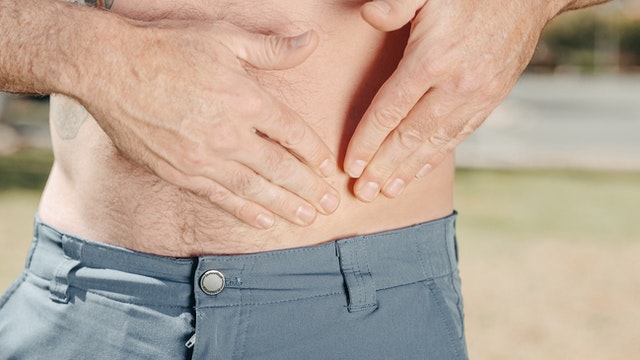Most people know at least one person who has had a hernia. Unfortunately, they probably also know someone who has let their hernia problem go on for way too long for some reason or another. Fear,
lack of insurance, and not having a primary care physician are some of the most common reasons we've heard for why people have waited too long to be seen for their hernia.
But did you know that hernias don't go away on their own and often require surgery to fix? It is often best to get hernias fixed as soon as possible. If you don't, they can potentially lead to some serious long-term problems down the road.
Here, we will discuss how to prevent a hernia from occurring so it doesn't happen to you. We'll also discuss the different types of hernias, how they're treated and more.
Hernias affect approximately
5% of people in the United States. They occur when tissue or a fatty organ makes its way through a weakened area and into the surrounding muscle or fascia (connective tissue). They are commonly seen around areas on the abdomen but can also occur in areas where there are pre-existing surgical scars. They can also occur in regions of the groin and umbilical region.
Hernias are classified into the following types:
Inguinal hernias account for about 75% of all abdominal wall hernias, making them the most prevalent of all the hernia types. They happen when a portion of the small intestine comes through a weakness in the abdominal wall and protrudes into the inguinal canal.
Femoral hernias are less common than inguinal hernias. They occur when parts of the intestine push through a weakened portion of the abdominal wall and encroach into the femoral canal. It occurs low in the groin region and is more prevalent in females.
Umbilical hernias occur when a part of the intestine comes through a weak part of the abdominal wall and protrudes around the navel (belly button).
Incisional hernias, or ventral incisional hernias, occur when a portion of the intestine protrudes through a surgical incision in the abdominal wall.
Epigastric Hernias usually occur as a small painful bulge midway between the chest and the umbilicus.There are several factors that can contribute to the development of a hernia, including:
Congenital defects: Some babies are born with weakened areas in the abdominal wall that can predispose them to develop a hernia later in life.
Previous surgery: Any type of abdominal surgery can create a weak spot in the abdominal wall that may lead to a hernia.
Pregnancy: The added weight and pressure on the abdomen during pregnancy can contribute to the development of a hernia.
Chronic cough: A chronic cough can put extra pressure on the abdominal muscles and lead to a hernia.
Lifting heavy objects: Lifting heavy objects can put extra pressure on the abdominal muscles and lead to a hernia.Hernias can really put a damper on your life. They can be painful and make it difficult to do everyday activities. Fortunately, there are some tips you can follow for hernia prevention. Be sure to:
Avoid lifting heavy objects: If you must lift heavy objects, use proper technique and avoid jerking or twisting motions.
Treat chronic cough: If you have a chronic cough, work with your doctor to treat the underlying cause.Wear supportive clothing: Wearing supportive clothing, such as a belt, can help reduce the chances of developing a hernia.Don't smoke: Smoking weakens collagen production in the body, thereby weakening abdominal muscles.
Eat a healthy diet: Eating a healthy diet will help you maintain a healthy weight and reduce the amount of pressure on your abdominal muscles.If you have a hernia,
treatment will depend on the type of hernia and its severity. If the hernia is large or causing pain, you may need surgery to repair it.
Surgery is typically done as an outpatient procedure and involves making an incision in the affected area and stitching the weakness in the abdominal wall.
If you are experiencing any symptoms of a hernia, such as pain or swelling in the abdomen, groin or other areas, contact your doctor as soon as possible for an evaluation.
All hernias can cause discomfort or pain. They often get larger over time and all may incarcerate or strangulate, which can be life-threatening conditions. Early diagnosis and treatment can help prevent complications from a hernia.
Remember, a hernia's evolution is often unpredictable; they never go away on their own or get smaller.
Hernias can often be repaired surgically, and The Center for Hernia Repair can help. We are a leading provider of hernia surgery and our team of experts, including
Dr. Jonathan Yunis, have experience treating all types of hernias.
Don't put your hernia problems off any longer; reduction of pain post-surgery, quick recovery and the prevention of the hernia's recurrence are at the forefront of our center.
Contact us today to schedule a consultation.
